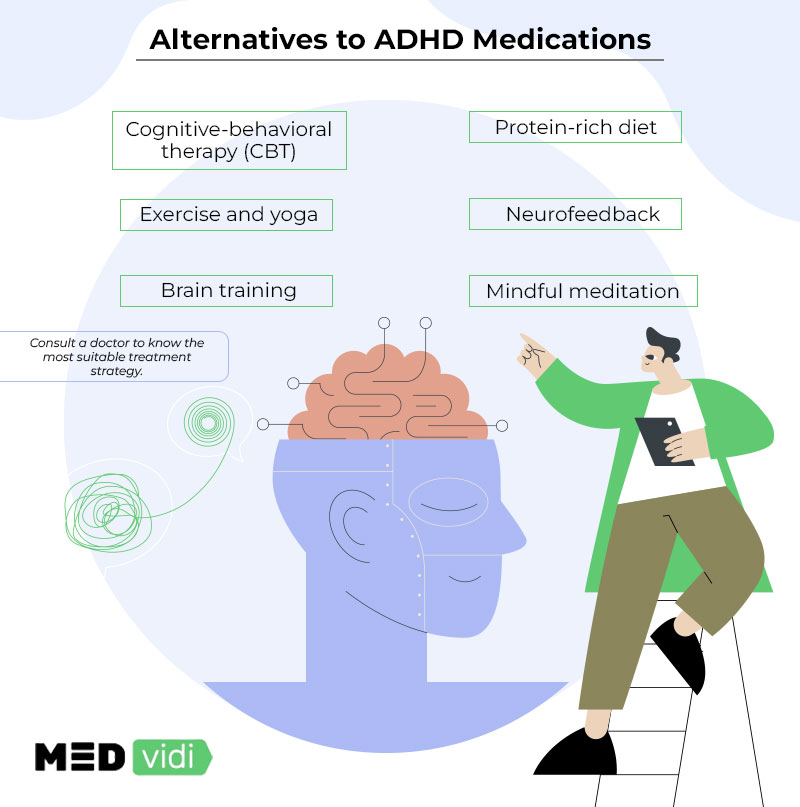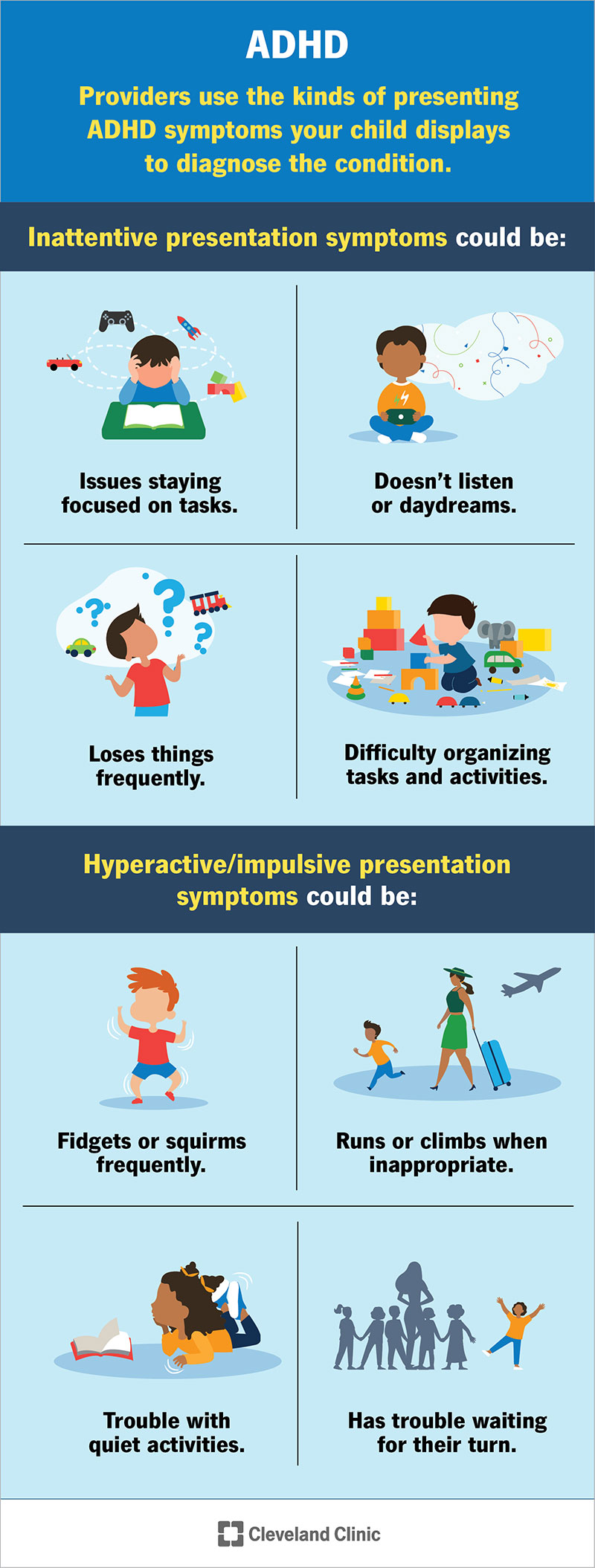Experienced ADHD Treatment for Managing Symptoms
Experienced ADHD Treatment for Managing Symptoms
Blog Article
Your Guide to Finding the Right ADHD Treatment for Long Lasting Results
Browsing the intricacies of ADHD treatment requires a nuanced understanding of both the problem and the myriad alternatives readily available for effective administration. It is vital to recognize that what help one person may not always yield the exact same outcomes for another. Therefore, a customized method-- including professional support, drug, behavioral methods, and way of living adjustments-- ends up being paramount. The journey toward recognizing the most ideal treatment plan can be laden with challenges. What are the essential variables that influence successful results, and just how can individuals ensure they are on the best course?
Comprehending ADHD and Its Effect

In adults, ADHD can lead to challenges in workplace environments, affecting performance, time management, and interpersonal relationships. Frequently, undiagnosed or poorly took care of ADHD can add to co-occurring mental health problems, such as stress and anxiety and depression, more making complex an individual's total health.
The societal perception of ADHD can differ, causing stigma and misunderstanding, which might prevent people from looking for help. As awareness grows, it is important to cultivate a setting that advertises understanding and support for those impacted by ADHD, highlighting the need for precise diagnosis and customized strategies to reduce its effect on day-to-day life.
Introduction of Therapy Alternatives
A thorough strategy to dealing with ADHD encompasses a range of options tailored to the person's distinct demands. These options can extensively be classified into behavior interventions, psychoeducation, and way of life alterations, alongside medicinal therapies that may be discovered later.
Behavior treatments, such as cognitive-behavioral treatment (CBT), focus on customizing specific behaviors and establishing coping approaches to manage signs effectively. Psychoeducation plays a critical role in equipping both people and their family members by providing information regarding ADHD, its obstacles, and reliable techniques for assistance.
Way of living modifications can dramatically impact ADHD administration. Normal exercise, a balanced diet, and appropriate rest add to total well-being and signs and symptom control. Mindfulness techniques and relaxation techniques can also enhance focus and decrease impulsivity.
Support system and family members treatment can cultivate a feeling of area and understanding, aiding people feel less separated in their experiences. Each treatment option should be thought about along with the individual's choices and conditions, ensuring a holistic approach that promotes long-term success. Inevitably, the goal is to develop a weblink personalized treatment plan that attends to the details challenges related to ADHD while improving overall high quality of life.
Medicine: Benefits And Drawbacks
Medication plays a critical role in the treatment of ADHD, with many alternatives readily available that can significantly alleviate signs and symptoms for several individuals. Stimulants, such as methylphenidate and amphetamines, are generally recommended and have revealed efficiency in enhancing emphasis, reducing impulsivity, and boosting general behavior. These medicines work by raising dopamine and norepinephrine degrees in the brain, which are typically dysregulated in those with ADHD.
Nevertheless, using medicine is not without its challenges. Some people might experience side effects, consisting of sleeplessness, decreased hunger, or increased anxiousness. Finding the ideal dosage can be an experimental process, calling for close monitoring by medical care professionals. In addition, not all individuals react to stimulant drugs, leading some to check out non-stimulant choices, which might have a delayed start of action or different adverse effects.
It is vital for people and their families to evaluate these pros and cons carefully. news Stabilizing the benefits of sign administration against possible adverse effects is vital for accomplishing optimum treatment outcomes. Collaboration with doctor can assist in educated choices, ensuring that medicine becomes part of an extensive ADHD management plan.
Behavioral Therapy Techniques

One typically utilized technique is Cognitive Behavior modification (CBT), which helps individuals identify and change unfavorable thought patterns that add to ADHD-related obstacles. Therapist for ADHD. Via CBT, customers learn to set realistic goals, manage time properly, and develop organizational systems
Another effective method is Moms and dad Monitoring Training (PMT), which educates parents on how to reinforce positive habits and minimize unfavorable ones with constant self-control and interaction approaches. This approach fosters a supportive home atmosphere that motivates behavioral enhancements.
Social skills training is likewise essential, assisting people with ADHD navigate social interactions better. Role-playing and modeling appropriate behaviors can enhance social proficiency and decrease anxiety in social situations.
Lifestyle Changes for Better Management
Just how can way of living modifications dramatically improve the management of ADHD symptoms? Implementing strategic lifestyle alterations can cause considerable improvements in focus, organization, and emotional policy for individuals with ADHD.
First of all, developing a structured everyday regimen assists in producing predictability, which can reduce sensations of bewilder. Consistent timetables for Web Site dishes, study, and sleep can improve daily performance.
Integrating routine physical activity is likewise important, as workout has been shown to boost dopamine degrees, improving interest and motivation (Therapist for ADHD). Intending for at the very least 30 minutes of moderate exercise most days can be beneficial
Nutrition plays a crucial duty too. A balanced diet abundant in omega-3 fatty acids, entire grains, and healthy protein can support cognitive function. Restricting refined sugars and caffeine might lower symptoms, as these can lead to power collisions and irritability.
Verdict
To conclude, discovering the right ADHD treatment demands a complex approach that takes into consideration individual requirements and choices. A combination of medicine, behavior modification, and lifestyle modifications can considerably enhance signs and symptom administration and general wellness. Participating in psychoeducation and establishing structured routines even more supports effective treatment strategies. Cooperation with healthcare experts and open communication with assistance networks are essential components in browsing the complexities of ADHD management, eventually leading to lasting outcomes and boosted lifestyle.
Report this page